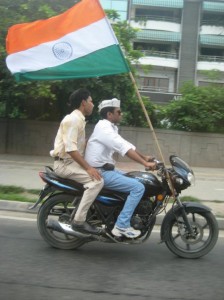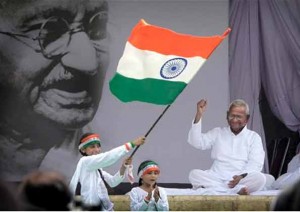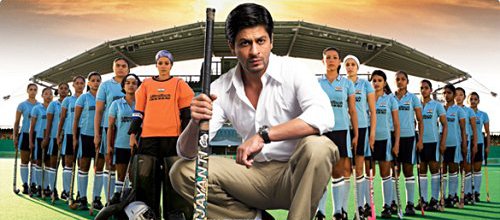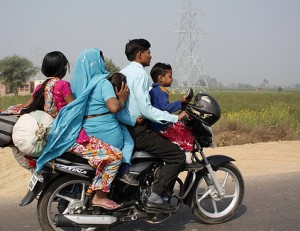We have seen a tremendous response to the peaceful protests triggered by Anna Hazare’s indefinite fast. People from all over the country, and even Indians living abroad, have shown their support for Anna Hazare and Jan Lokpal Bill by peacefully assembling and holding protest marches. He has united India across religions, caste, language or any other divisive factor. It is heartening to see India united for something other than cricket.
The number of people who have protested have been humungous by any standards. In Delhi and Mumbai each, more than a lakh people marched on 21 Aug 2011. Even in Bangalore, I have been hearing news of around 25000 or more people assembling daily. Similar stories are coming from other cities too, even smaller ones. While I don’t doubt that Anna has immensely resonated with the masses and given hope to millions of frustrated Indians, I also feel that going to a protest site is a very ‘easy and convenient‘ way of showing one’s support to Anna. A real test of commitment to Anna and his Gandhian methods of protest would be if we inculcate many of his preachings in our daily life.
Anna’s protest has been based on Gandhian principles of fasting and satyagraha. He has advocated the right of citizens to protest peacefully. He has asked people to pray for the ministers and the government. Gandhi ji also used fasting as a tool for punishing oneself so as to melt the hearts of your opponent and win him over to your side. But a big question to ask is, “Can the common man live by these principles?”
Truth
Gandhi’s whole philosophy is based on truth. In our everyday lives this would translate to questions like these
- Can we live our lives truthfully and honestly, at home and at work, in public and in private, with friends and with family?
- Can we pledge to follow the rules of the law and live like ideal citizens? Can we wear helmets every time we go out on a two-wheeler and can we not jump signals even if the roads are empty? (In the current movement, I have seen people on two-wheelers carrying the tricolor but without a helmet..)
Sacrifice
Gandhian methods of satyagraha and living a simple life resonates from the principle of sacrifice as a means to purify the opponent. In real life, this principle would translate to questions like –
- Can we pledge to not give any bribe to a cop, babu or a politician?
- Are we ready to suffer delays and other harassments which might occur when we refuse to pay bribes?
- Are we ready to sacrifice our personal comfort for the greater goal of a just society?
- Can we persist making these sacrifices and suffering even while others around us might not be doing so?
Love the Opponent
According to Gandhi, non-violence doesn’t only mean such in action, it is also meant in thoughts and words. To understand this, we need to ask ourselves questions like –
- Can we truly remove the thoughts of hatred from our minds for those who have been unfair to us?
- Can we love everyone alike, even our opponents, and demonstrate it in thought, word and deed?
- Can we hate the sin and not the sinner, and stand up against the sin but continue to love and forgive the sinner?
Equality and No Discrimination
The whole of Gandhi’s life and Anna Hazare’s work in Maharashtra has emphasized on the removal of untouchability and discrimination on basis of caste, language and social factors. The people of Ralegan Sidhi (Anna’s village) call it as a family and not as a village.
- Can we treat our fellow citizens as brothers and sisters and part of the same family?
- Can we look beyond our caste, language, economic status and love and treat each other alike?
- Are we ready to practice what Gandhi said, that we are all children of the same God, and any kind of discrimination would be reprehensible to Him?
What I am trying to say that while it is very easy and convenient to show and voice our support in Anna Hazare in a rally, it would be very demanding and challenging to practice what Anna is following in his daily life. We might have to suffer some short term difficulties and make some sacrifices, but we all know in our hearts that the long term benefits of such a life are always good and more fulfilling. And leave alone corruption, we would remove all or most of the ills that plague our society if we live by the principles by which Anna, and other Gandhi followers live by.
There is a famous Chinese proverb which I think has a very deep meaning which says – “Laws control the lesser man. Right conduct controls the greater one.” Can we answer YES to the questions I have listed above? Please leave your views and responses as comments below.. If there are any other questions you might want to add to the list, add them as comments too 🙂




